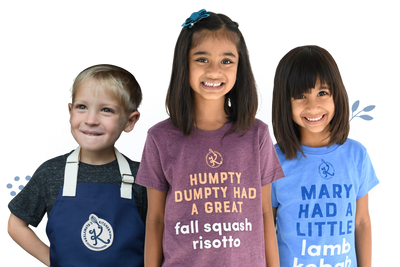
Taste Bud Profile
Philip Krajeck

I loved hearing about Chef Philip's philosophy on hospitality and creating experiences for people. After so many years in the restaurant industry, I could totally relate. The idea that every interaction is an opportunity is such an important one for great service, and also for expanding and surpassing expectations.



Philip Krajeck: My mother is Norwegian, and my father is 3rd generation Polish American. We moved around quite a bit when I was younger, since my father has a military background and also worked for NATO, but my formative years were spent in Brussels, Belgium. I went to an international school with 36 different nationalities represented in my graduating class.
While I never had any inkling that food would become my career—to be honest, I was a little lost when I finished school—I can look back now at the way I was raised and see a much clearer line to who I am now.

In Brussels, I lived in a small suburb, with nothing particularly notable or special about it in Belgium, though in hindsight it was worlds away from the norm in the US. The neighborhood had a charcuterie shop, a bakery, a patisserie, a farmer’s market every other day, and this was all just normal. Having fresh baked bread every day was just a given. I grew up with it, and certainly didn’t appreciate it till I left. When I finished school, I moved to Florida for college, and it was like night and day—there was one tiny grocery store in town and the food at school was awful. That’s when I realized that food was important to me. I thought back to my best moments with my friends, where we’d pick up a chicken and a baguette from the market, pommes frites, some beers, and just hang out in a park with a casual but delicious spread in front of you, and I missed those moments.
I cared not only about its deliciousness, but the ritual of picking it up, appreciating the people who made or grew it, and then watching it transform into an entire experience, not just an item.
I started cooking for my friends and my family, and eventually in a restaurant. I happened to get my first real cooking job in a kitchen that cared very deeply about consciously sourcing, and I did my own research on how I could potentially create something of my own with extremely high ethics on sourcing and serving. I wanted a hospitable space, which had a lot of personality but also didn’t make that personality the center of the experience—I didn’t want anything pretentious. Because if you can create that environment of hospitality, you can create really honest moments of engagement with people—like when someone says “wow, I didn’t know chicken could taste like this.” And our server can explain that it’s because it came from a farmer who only lets the chickens run around in a pasture and eat bugs and feed naturally, so it will of course taste different from what is considered normal.

I’ve always looked at our greater vision as being able to help people recognize these things about food without beating them over the head with ideology. It’s not about my own ego as a chef, it’s about letting other people have their own experiences, and maybe helping them get there.
I hate to say it, but my parents didn’t directly influence me with cooking. It was pretty basic fare—there was always a can of cream of mushroom soup to stir in to green beans. But they exposed me to so much through their travel and their work. My mom may have scooped Ragu out of the jar and onto noodles for us occasionally, but she also let me eat dinner at my Italian neighbor’s house every time my parents travelled. And there I’d have a primi, a secondi, an antipasto course, a pasta course, salad after protein—it was like a 2.5 hour affair, for Tuesday night dinner. And while that sounds elaborate, the food itself was hyper-minimalist and traditional. The most fundamental things like water, flour, and milk, could combine to create an entire universe of flavor. Even though I didn’t know it then, that’s when I first started to really appreciate the simplest things— the synergy between the noodle and the condiment. Now I can look back at my career and know that it was that experience that made just water and flour the cornerstones of my career.
Getting people to see the value in these simple, primal things is so important to me now. It’s crazy that we have to reverse engineer these experiences—things that were so normal and the natural evolution of the time and place things were grown—but we do. And I’m proud to work hard to get back to that, and figure out ways not just to appreciate food, but to not waste it, and not take it for granted.
I’m grateful that my daughters were similarly exposed when they were young, and also that they are much more aware of it than I was. They used to stay with their grandmother, who is Greek, every summer. She owned a tiny pastry shop outside of Thessaloniki, and made sure that my daughters were immersed in the culture, which really meant immersed in the food. Through those experiences, they have the same voracious appetite for these super authentic food moments as I do. I think of what it has meant in my daughters’ lives to really appreciate a perfectly ripe fruit, for example, and the desire to not just eat it when it’s fresh but preserve if you have extra and waste nothing. They watched their grandmother meticulously use every scrap of everything. Getting kids in this country connected to the value of food and the ecosystem and lives it supports is such a good way to bring everybody up together. And I do think if you can spark something in them early on, they’ll be much more open to living thoughtfully later on.

